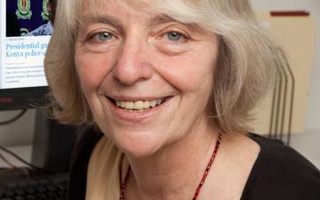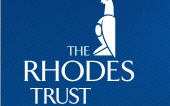Visiting researchers Rodríguez, Maestre Mesa and Díaz were invited to Harvard through the Rockefeller Center’s Cuban Visiting Scholar Program, which was started 10 years ago in the hopes of increasing communication and improving relations between Cuba and the United States.
All three are employees of Cuba’s Pedro Kourí Institute of Tropical Medicine, a division of the Cuban government’s Ministry of Health.
Rodríguez said that because Cubans are prohibited from purchasing chemicals and other materials from the United States, the opportunity to visit Harvard allows Cuban scientists to explore otherwise unavailable avenues of research.
“Because of this, cooperation with countries that have these possibilities is very important,” Rodríguez said.
In addition to allowing Cuban scholars access to Harvard’s resources, the visiting scholar program collaborates with the Institute of Tropical Medicine to send Harvard professors to teach and conduct research alongside Cuban academics.
Michael N. Starnbach, an associate professor of microbiology and molecular genetics at Harvard Medical School who has traveled to the Cuban institute, said the visa delays have “really prevented us from moving the collaboration forward.”
“There were specific techniques that they were hoping to learn and apply to our studies,” he said.
BORDER CONTROLS
State Department spokesman Lou J. Fintor said that the U.S. government’s “policy is to encourage people-to-people exchanges in Cuba and to advance the prospect of democratic transition.”
It makes exceptions to the general rule prohibiting travel by government officials or employees “on a case-by-case basis,” Fintor said, adding that he could not comment on specific cases.
Since Sept. 11, however, officials at Harvard said that standards have been tightened—causing unprecedented delays for scholars invited as visiting researchers.
“For Cuban nationals coming to the U.S., it has been very difficult—if not impossible—to get visas,” said Parker M. Emerson, a senior adviser to foreign students and scholars at the Harvard International Office (HIO).
After Sept. 11, the U.S. government imposed new restrictions on travel to and from a number of countries in efforts to tighten security. Cuba is currently on the State Department’s list of countries that sponsor terrorism.
With the assistance of the HIO, the three microbiologists applied for short-term visas a total number of four times, according to Rockefeller Center program associate Lorena G. Barberia.
“The first time, it wasn’t too hard,” Rodríguez said. “We thought it would be a little delayed...some people we knew got visas a few months before us and it wasn’t too hard for them.”
Read more in News
Quincy Considers RestrictionsRecommended Articles
-
 Scholars Among Students
Scholars Among Students -
HGSE Sponsors Immigration TalksJournalists and scholars gathered last Friday at the Nieman Foundation to discuss the unique relationship between their respective fields in tackling the issue of illegal immigration—a topic they agreed was generally misunderstood by the public
-
 Harvard and Rhodes: By the Numbers
Harvard and Rhodes: By the Numbers -
In Song, Hidden Meanings of Gender and HistoryIn 1620, a nobleman and a nun in Florence, Italy, were accused of having an affair and charged with adultery. They claimed that the nobleman had sneaked into the nun’s apartment to hear her sing, not because of a sexual relationship.
-
Two Students Awarded Marshall ScholarshipsAlex W. Palmer ’12 and Aditya Balasubramanian ’12-’13 will study in the United Kingdom next year as two of the 34 nationwide recipients of the 2013 Marshall Scholarship.
-
 'Jesus's Wife' Parchment Continues to Ignite Controversy
'Jesus's Wife' Parchment Continues to Ignite Controversy













